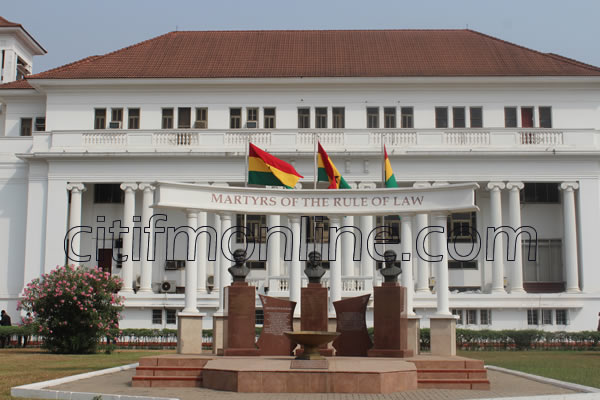A five-member panel of the Supreme Court, has dismissed a civil appeal by Prophet Miritaiah Jonah Jehu-Appiah of the Musama Disco Christo Church (MDCC), against his removal as Head of the church (Akaboha III).
The panel comprised Justice William Atubiga, who presided, Justice Mrs S.O.A Adinyira, Justice N.S. Gbadegbe, Justice J.B. Akamba and Justice A. A. Benin.
Justice Atubiga said in 2002, the Bold and Beautiful newspaper published an article alleging that the defendant had drugged and raped a Junior Secondary School girl.
Scandalized by this, the executive council of the plaintiff church met and urged the defendant to institute a libel action against the newspaper. The defendant however pleaded that the plaintiff church should rather ‘appeal’ to the publishers to stop further similar publications.
The investigative council then set up an investigative committee to delve into the allegation.
The investigative committee found that the defendant had indeed committed sexual misconduct contrary to the Church’s constitution and the Bible.
The defendant’s reaction was that he was reserving his comment but would undertake a 21-day fast with prayers for the forgiveness of sins and would compensate his sex victims.
He was suspended and later the plaintiff church’s I’Odormey conference (the general annual assembly of the plaintiff church, which according to the constitution of the church is the governing body), reached consensus to remove him from office.
Whilst trying to formulate consensus, some family members of the defendant invaded and disrupted the conference.
The defendant was later formally removed but some of his family members challenged the said removal claiming that the Akaboha or head holds the office for life and cannot be removed.
The MDCC brought an action against the defendant in the High Court, which among others said Akaboha has been permanently removed from office as from Friday February 14, 2003.
Dissatisfied with the judgement, the defendant appealed to the Court of Appeal, which upheld the decision of the High Court on all the issues.
The defendant appealed against the decision at the Supreme Court on a number of grounds, which includes; the judgement was against the weight of evidence and that the Court of Appeal erred by ignoring the evidential rules relating to admission of fact when it turned a blind eye to the import of the evidence put up by defence witness Nana Koomson.
Justice Atubiga said it was clear from Exhibit 1 that “the plaintiff church was established inter alia, sanctity and therefore it would defeat that object and spirit to construe it literally to mean that the Akaboha can hold his office for life even if he is morally decadent”.
He said the tenure of office of an Akaboha for life does not stand alone in the air but is meant to give him the peace of mind for effective attainment of the objectives of the church.
Justice Benin said the defendant in a desperate attempt to salvage his battered image and position was prepared to rely on anything, however untenable it may appear to be.
He said the Akaboha refused to cause even a rejoinder to be published to retract the newspaper story about him.
“In these circumstances how would you expect the members of the church to wait until a formal authorisation has been given by the I’Odormey Conference, which the defendant chairs,” he said.”
Justice Benin said in criminal offences of rape and defilement it is only the State, represented by the Attorney General and the courts of the land that could deal with.
“Indeed subsection 5 of section XIV of the church’s constitution, exhibit 1, makes it clear that the arbitrators are to decline jurisdiction ‘when it is found to be more serious and above the church’s jurisdiction.’
“There is no doubt that such criminal offences as rape and defilement are above their jurisdiction.
“Arbitration in the circumstances of this case was a non-starter. These arguments are thus roundly rejected. The action was thus properly brought by persons with the right capacity to act on behalf of the church.
–
Source: GNA


